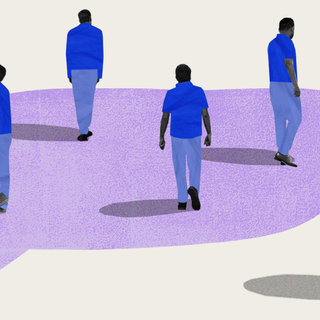
Men Are Less Religious in Countries With More Gender Equality, Shows Study
“Religion isn’t just some symbolic thing, but actually has a lot of mundane functions… people turn to religion [to fulfill their] needs.”

Many Indians have grown up hearing things like “Pati parmeshwar hota hai” (your husband is your god), so it is hardly a revelation to learn that men are more religious in countries with poor gender equality. A new sex-based global analysis seeks to understand how religiousness among men and low levels of gender equality are interlinked with each other.
Their conclusion: men’s motivation to be more religious may have something to do with their individual mating goals. That is if the prevailing religious notions of sexuality and reproduction fit in with a man’s goals — in terms of the rules he’d prefer to establish within his marriage, or how he’d like to approach reproduction, among others — he may choose to be more religious.
Published in Proceedings of the Royal Society, the study analyzed data from 125 countries in two tranches. It found that country-level gender equality was negatively associated with religiousness among men — basically, men were found to be more religious in countries that are less equal in terms of gender.
“One of my interests is how people use religion to advance their goals, and often these goals are related to mating… [A]ttitudes about family and sexuality — e.g., opposition to sexual promiscuity — are pretty consistent predictors of religiousness across cultures, and some evidence suggests that people are drawn to religion, in part, because it advances their goals in this way,” Jordan Moon, first author of the study and Ph.D. candidate at Arizona State University, explained.
Related on The Swaddle:
Explaining Dhat Syndrome: Why Young Indian Men Are So Afraid of Losing Their Semen
“Religion isn’t just some symbolic thing, but actually has a lot of mundane functions… So it shouldn’t be surprising that people turn to religion when they have certain needs,” Moon added.
According to the study, it may be the patriarchal aspects of religion that may draw men to religion. And “if gender equality makes it more difficult to enforce these rituals or norms, religion might be less appealing to men (relative to women) in societies with greater gender equality.”
Interestingly, the researchers found that women were more religious than men in most cultures. But at the same time, Moon also noted that being patriarchal, organized religions mostly tend to benefit men. And they often do so at the cost of women — through “rituals or norms that restrict or punish women more than men.”
“Our logic in this research was that, if the patriarchal aspects of religion are part of what draws men to religion (or how they use religion to help achieve their goals), and if gender equality makes it more difficult to enforce these rituals or norms, religion might be less appealing to men (relative to women) in societies with greater gender equality,” Moon added.
Related on The Swaddle:
Disrespecting Indian Values, Mocking Men Among Reasons People Find an Ad Offensive: Survey
That religion is used to oppress women is more of a fact than a mere theory. A study cited by the World Economic Forum noted that in, at least, 50 countries women are harassed for violating dress codes that are rooted in religious beliefs. Reports have also noted religious undertones in the ongoing “debate” around abortion rights in Texas, where women are fighting for the right to control what happens to their bodies.
However, the researchers neither found nor asserted a causal relationship between poorer gender equality in a culture and greater religiousness among its men. As such, the findings may make one wonder whether a culture’s reliance on religious beliefs may have a role to play in preventing a country from achieving greater gender equality. Moon thinks that’s plausible: “I would bet the effects go both ways — people make decisions about their beliefs within these different cultural contexts and the actions of citizens also influence a country’s gender equality.”
Nonetheless, even if the religiousness of a culture impacted its gender equality, a fall in the religiousness might not necessarily — or as simply — give an impetus to equality between the sexes. According to Moon, that’s due to the very nature of religions, “Religions are often constrained by the broader cultural context… Beliefs and rituals must be palatable to enough people to thrive, so I suspect that religions will often make changes to remain appealing to as many people as possible.”
Basically, religions will find a way to thrive by making themselves more appealing to the evolving collective consciousness of any society. At the same time, people who think that religion can further their interests — be it in terms of mating, controlling their partners, or simply making social, financial, or political gains — will continue to conform to religious beliefs.
Devrupa Rakshit is an Associate Editor at The Swaddle. She is a lawyer by education, a poet by accident, a painter by shaukh, and autistic by birth. You can find her on Instagram @devruparakshit.
Related


Media Framing the JNU Violence Over Non‑Veg Food as a ‘Clash’ Condones the Assault
